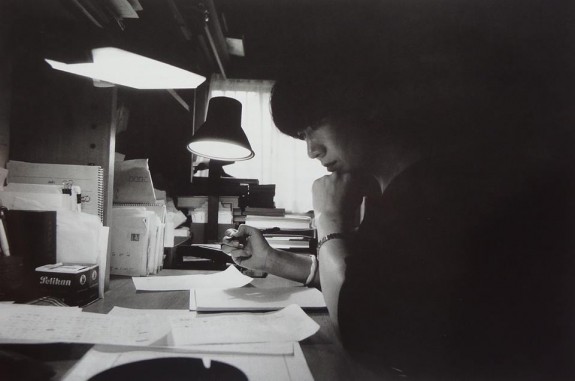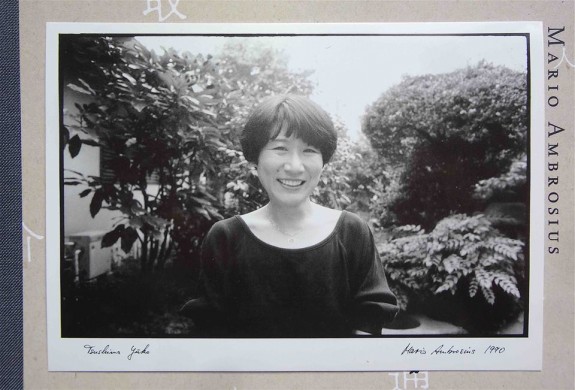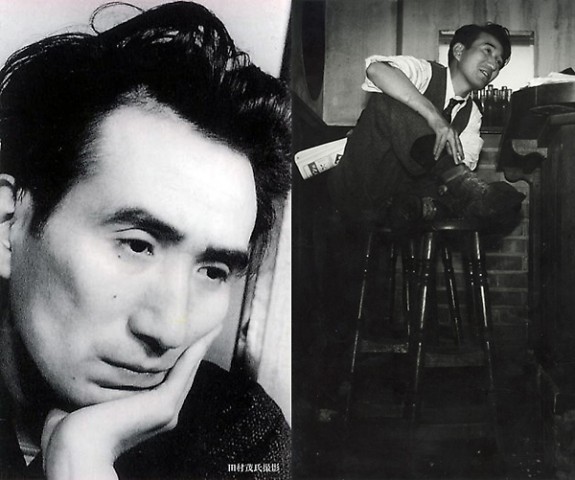Remembering Tsushima Yuko -A Novelist who inherited the talent of her father Dazai Osamu

Photo by Mario Ambrosius
Kojin Karatani Love and Empathy for the Oppressed Remembering Tsushima Yuko.
It is not well known in Japan that Yūko Tsushima was a strong candidate for the Nobel Prize in Literature. She wrote a wide variety of works that were entirely worthy of the award, and she was active internationally. If only she had lived a little longer, she would probably have won. Also, I walked with her a number of times in demonstrations against nuclear power in front of the Diet. It is sad to think that I can’t do that any more.
Asahi Shimbun, February 23, 2016
(Translated by Geraldine Harcourt)
Kojin Karatani – and Natsume Soseki (previous post)
Tsushima Yuko (wiki) (30 March 1947 – 18 February 2016), known by her pen name Yūko Tsushima (津島 佑子 Tsushima Yūko), was a Japanese fiction writer, essayist and critic.[1] She was the daughter of famed novelist Osamu Dazai, who committed suicide when she was one year old

Takako Matsui and Tadanobu Asano
Villon’s Wife is based on the 1947 semi-autographical short work of the same name Villon’s Wife by Dazai Osamu. The title was inspired by 15th century French poet Francois Villon.
Dazai Osamu (1909-1948) was born about halfway between Kawabata Yasunari (1899-1972) and Mishima Yukio (1925-1970) and Abe Kobo (1924-1993), and, in that generation following the Pacific War, when Japan was occupied by Americans, his celebrity came in between, too. Kawabata was an established writer while Mishima and Abe were building their early reputations (Mishima to establish his much younger), and Dazai was, for a time, the most distinguished writer in town–so an important 20th century Japanese novelist–making him Mishima’s early competition. And Mishima saw him as representing all that he most despised in post-war Japanese fiction, hated to be compared to him.
A number of his most popular works, such as Shayō and No longer human (Ningen Shikkaku), are considered modern-day classics in Japan. With a semi-autobiographical style and transparency into his personal life, Dazai’s stories have intrigued the minds of many readers. His books also bring about awareness to a number of important topics such as human nature, mental illness, social relationships, and postwar Japan.

